Graduates of the Doctoral Program in Educational Leadership & Policy reflect on the professional and personal impacts of the EdD.
View and download the EdD alumni booklet here
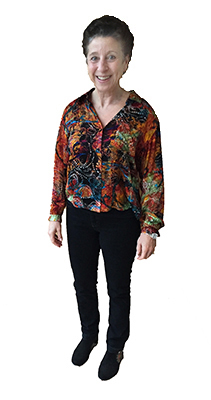
Nadine Fabbi was looking for something new at the time she applied to the EdD program in 2009; something that would move her educational practice ahead. And she found it. At that time Nadine had worked as the Managing Director of the Canadian Studies Center at the University of Washington for more than ten years. The focus of Nadine’s dissertation was the development of a Minor in Artic Studies for her university, a program that she then designed and helped to launch. Nadine now enjoys the interplay of her work in management, teaching and research.
"So much of what seems to happens in institutions is about administration. You can just get caught up in the nuts and bolts of it. The EdD has brought me back to the initial love for the educational process; it helped me to ask, 'What are we doing educationally here?’ My practice is now increasingly committed to full collaboration of Indigenous scholars, students and other Indigenous voices."
NADINE FABBI
Managing Director, Canadian Studies Centre & Arctic and International Relations, Henry M. Jackson School of International Studies University of Washington, Seattle
Cohort 2009
Nadine Fabbi was looking for something new at the time she applied to the EdD program in 2009; something that would move her educational practice ahead. And she found it. At that time Nadine had worked as the Managing Director of the Canadian Studies Center at the University of Washington for more than ten years. The focus of Nadine’s dissertation was the development of a Minor in Artic Studies for her university, a program that she then designed and helped to launch. Nadine now enjoys the interplay of her work in management, teaching and research.
"So much of what seems to happens in institutions is about administration. You can just get caught up in the nuts and bolts of it. The EdD has brought me back to the initial love for the educational process; it helped me to ask, 'What are we doing educationally here?’ My practice is now increasingly committed to full collaboration of Indigenous scholars, students and other Indigenous voices."
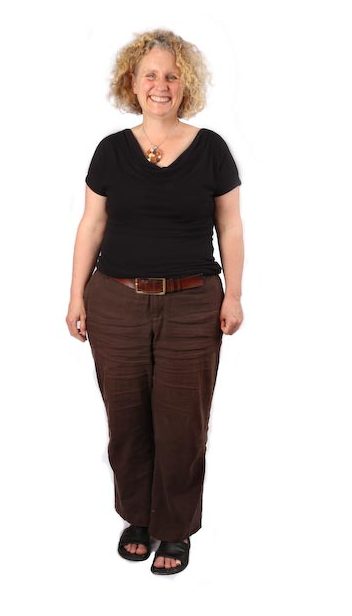
"The EdD research experience afforded me an opportunity to connect to the broader community and people that were like minded, in terms of their philosophies around education and creating classrooms that support students."
Working with immigrants and refugees in a Canadian urban centre is full of challenges. And this is where Amea Wilbur’s professional practice has been located for more than 10 years. At the time she began the EdD program in 2007, Amea was working for Vancouver Coastal Health, teaching in a small program that provided English as a Second language and life skills for people with chronic and severe mental health issues. Amea was also gearing up for the life of a practical scholar, and her EdD research led her to examine the way ESL teachers are traditionally trained. She made the case for teachers to learn how to teach more than the English language. She wanted them to learn how to create more inclusive classrooms and to have a greater understanding of the complexity of the learning needs of their immigrant and refugee students.
Watch an interview with Amea here.
AMEA WILBUR
Manager, Pacific Immigrant Resources Society, Vancouver
Cohort 2007
"The EdD research experience afforded me an opportunity to connect to the broader community and people that were like minded, in terms of their philosophies around education and creating classrooms that support students."
Working with immigrants and refugees in a Canadian urban centre is full of challenges. And this is where Amea Wilbur’s professional practice has been located for more than 10 years. At the time she began the EdD program in 2007, Amea was working for Vancouver Coastal Health, teaching in a small program that provided English as a Second language and life skills for people with chronic and severe mental health issues. Amea was also gearing up for the life of a practical scholar, and her EdD research led her to examine the way ESL teachers are traditionally trained. She made the case for teachers to learn how to teach more than the English language. She wanted them to learn how to create more inclusive classrooms and to have a greater understanding of the complexity of the learning needs of their immigrant and refugee students.
Watch an interview with Amea here.
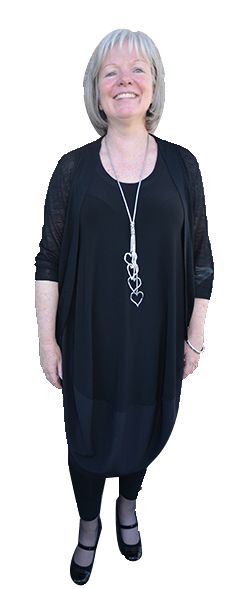
As a teacher and secondary school principal, Christine Perkins has always been deeply interested in democratic citizenship and the idea of student inclusion. Now Christine is the Assistant Superintendent for School District #58 Nicola-Similkameen, a district that embraces Merritt, Princeton, and the traditional territories of Upper Nicola, Lower Nicola, Coldwater, Shackan, Nooaitch, and Upper Similkameen Bands. Christine’s dissertation research, supported by many conversations with faculty and peers, led her to examine the power of school policy to support human rights, and particularly LGBTQ students and their allies. The EdD program yielded insight, learning and increased clarity about the kind of educational leader she wanted to become and contributed to both external recognition and a marked increase in confidence for Christine.
"Having an EdD gives me credibility when I speak on a particular topic, especially around anything to do with human rights which I'm passionate about. It gives me that confidence … It really helped me get my voice out there."
Watch an interview with Christine here.
CHRISTINE PERKINS
Assistant Superintendent for School District #58 Nicola-Similkameen
Cohort 2006
As a teacher and secondary school principal, Christine Perkins has always been deeply interested in democratic citizenship and the idea of student inclusion. Now Christine is the Assistant Superintendent for School District #58 Nicola-Similkameen, a district that embraces Merritt, Princeton, and the traditional territories of Upper Nicola, Lower Nicola, Coldwater, Shackan, Nooaitch, and Upper Similkameen Bands. Christine’s dissertation research, supported by many conversations with faculty and peers, led her to examine the power of school policy to support human rights, and particularly LGBTQ students and their allies. The EdD program yielded insight, learning and increased clarity about the kind of educational leader she wanted to become and contributed to both external recognition and a marked increase in confidence for Christine.
"Having an EdD gives me credibility when I speak on a particular topic, especially around anything to do with human rights which I'm passionate about. It gives me that confidence … It really helped me get my voice out there."
Watch an interview with Christine here.
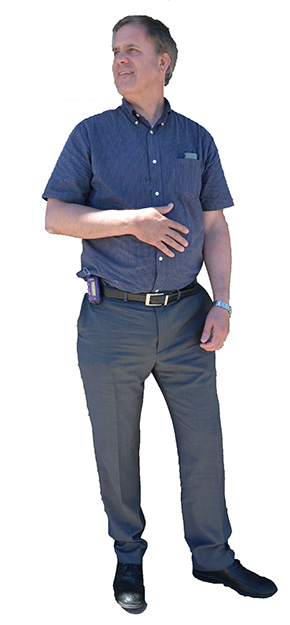
With a longtime interest in vocational education, Tom Weegar wanted to examine new possibilities for educational leadership, particularly how collaboration and power sharing figures in educational institutions. Now as the President of Cumberland College in Nipawin, Saskatchewan, a position Tom has held since 2013, he practices this form of leadership every day. It was early in the EdD program that the free exploration of these ideas “grabbed” him. Suddenly he had the time, space and intellectual resources to think deeply about post-secondary education—rarely available in the rush of a busy professional practice. These conversations led Tom to his dissertation topic, “Appreciative Leadership in Education,” and the idea that many people could be involved in substantive decision-making, not just those in centralized administration or in the boardroom.
"It was the philosophical conversations and discussions that we wouldn’t otherwise engage in typically in our work lives... those conversations really picked us up and inspired us and grabbed us and carried us into a ... deeper academic dimension that we hadn't been in, in a long time."
Watch an interview with Tom here.
TOM WEEGAR
President, Cumberland College, Nipawin, Saskatchewan
Cohort 2006
With a longtime interest in vocational education, Tom Weegar wanted to examine new possibilities for educational leadership, particularly how collaboration and power sharing figures in educational institutions. Now as the President of Cumberland College in Nipawin, Saskatchewan, a position Tom has held since 2013, he practices this form of leadership every day. It was early in the EdD program that the free exploration of these ideas “grabbed” him. Suddenly he had the time, space and intellectual resources to think deeply about post-secondary education—rarely available in the rush of a busy professional practice. These conversations led Tom to his dissertation topic, “Appreciative Leadership in Education,” and the idea that many people could be involved in substantive decision-making, not just those in centralized administration or in the boardroom.
"It was the philosophical conversations and discussions that we wouldn’t otherwise engage in typically in our work lives... those conversations really picked us up and inspired us and grabbed us and carried us into a ... deeper academic dimension that we hadn't been in, in a long time."
Watch an interview with Tom here.
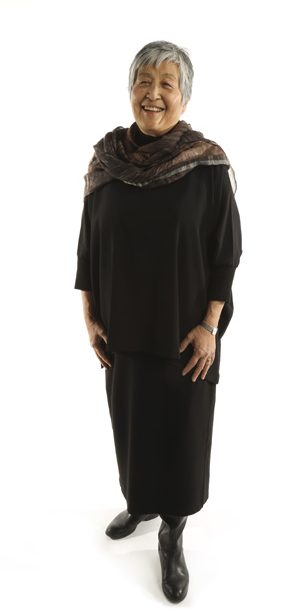
"The scholarly part of the EdD program helped me set up the scholarly part of this degree program at VCC…and being able to use the language of research—because of the research courses we took."
Kathy Fukuyama has always been intrigued with change and the practice of transformational leadership. So it made sense to Kathy to apply to the EdD in 2006 when institutional changes were taking place at Vancouver Community College where she was the Department Head of Practical Nursing at VCC and then the Acting Dean of the Health Programs. Now Kathy is the Director of VCC’s Bachelor of Science in Nursing program (BScN), a program she has been responsible for shepherding in and seeing through to accreditation. She brought her scholarly approach to this institutional transformation while also contributing to a new thinking in clinical nursing education through her dissertation research on the disjunctures in nursing clinical placements.
KATHY FUKUYAMA
Director, Bachelor of Science in Nursing, Vancouver Community College
Cohort 2006
"The scholarly part of the EdD program helped me set up the scholarly part of this degree program at VCC…and being able to use the language of research—because of the research courses we took."
Kathy Fukuyama has always been intrigued with change and the practice of transformational leadership. So it made sense to Kathy to apply to the EdD in 2006 when institutional changes were taking place at Vancouver Community College where she was the Department Head of Practical Nursing at VCC and then the Acting Dean of the Health Programs. Now Kathy is the Director of VCC’s Bachelor of Science in Nursing program (BScN), a program she has been responsible for shepherding in and seeing through to accreditation. She brought her scholarly approach to this institutional transformation while also contributing to a new thinking in clinical nursing education through her dissertation research on the disjunctures in nursing clinical placements.
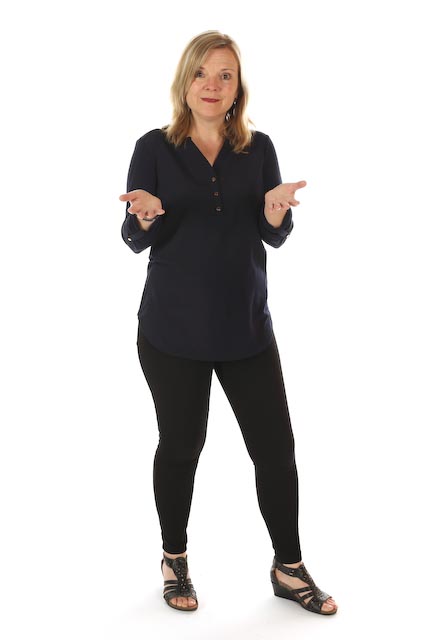
"Since exploring parts of my practice through the program I have a greater level of acuity, a higher level of consciousness and just more of a framework to situate the daily encounters I have as an educational leader, a practitioner and a teacher. "
Jeanette Robertson asks good questions, and lots of them. As the Chair of the School of Social Work and Human Service at Thompson Rivers University (TRU), Jeanette seeks to be a collaborative leader who is committed to asking questions about what best serves her program. Through her EdD dissertation research, Jeanette explored the important role field education coordinators play as leaders and “gatekeepers” in the development of social work students’ professional practice. Jeanette’s research was national in scope, involving those educators who oversee, support and place students in field placements. It resulted in a Canada-wide conversation about the value and importance of this role and the need for field coordinators to conduct their work in a fair and transparent manner. Fast-forward 10 years. Jeanette is now a recognized national authority on the subject of “professional suitability,” and she continues to do research on this subject and also to contribute to the nation-wide conversation on the regulation and education of social workers.
Watch an interview with Jeanette here
JEANETTE ROBERTSON
Chair, School of Social Work and Human Service, Thompson Rivers University, Kamloops
Cohort 2004
"My EdD research was really a very experiential one, so bringing forth social work field education coordinators’ voices and looking at what are they experiencing...The dissertation research has been a vehicle for sharing that on a broader scale and bringing together field education coordinators who usually work in isolation."
Jeanette Robertson asks good questions, and lots of them. As the Chair of the School of Social Work and Human Service at Thompson Rivers University (TRU), Jeanette seeks to be a collaborative leader who is committed to asking questions about what best serves her program. Through her EdD dissertation research, Jeanette explored the important role field education coordinators play as leaders and “gatekeepers” in the development of social work students’ professional practice. Jeanette’s research was national in scope, involving those educators who oversee, support and place students in field placements. It resulted in a Canada-wide conversation about the value and importance of this role and the need for field coordinators to conduct their work in a fair and transparent manner. Fast-forward 10 years. Jeanette is now a recognized national authority on the subject of “professional suitability,” and she continues to do research on this subject and also to contribute to the nation-wide conversation on the regulation and education of social workers.
Watch an interview with Jeanette here
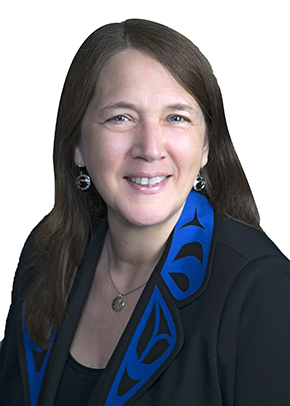
When an admired mentor suggests that you pursue a doctorate, you listen! This is how Trish Rosborough remembers a conversation with UBC Professor of Education Jo-Ann Archibald that led her to apply to the EdD program in 2004. At the time she was fully occupied professionally as the Provincial Coordinator, then Director, of the Aboriginal Education Program for the province of British Columbia. After graduating with her doctorate in 2012, Trish was appointed Assistant Professor, Indigenous Education in the Curriculum and Instruction Department at the University of Victoria. In this academic role she continues to influence the province’s educational policies, particularly the integration of Indigenous knowledge into the curriculum. The EdD credential opened up opportunities for Trish to serve in new ways, opportunities that deeply align with her research and her personal values.
"There is a lot of pride in achieving a doctorate. The door that it has opened for me, as assistant professor, is the closest I have come to making a living in a way that is so aligned [with what I care about]. I am able to bring a lot of passion to my work with Indigenous language revitalization. Much of what I do is work I would want to be engaged with even if it wasn’t my day job and the way I make my living. I care deeply about what I teach, about what I study and about what I’m learning. That I get to be a part of better understanding and effecting better approaches to Indigenous language revitalization is a privilege."
Watch an interview with Patricia here
PATRICIA ROSBOROUGH
Assistant Professor, Indigenous Education, Curriculum and Instruction Department, University of Victoria
Cohort 2004
When an admired mentor suggests that you pursue a doctorate, you listen! This is how Trish Rosborough remembers a conversation with UBC Professor of Education Jo-Ann Archibald that led her to apply to the EdD program in 2004. At the time she was fully occupied professionally as the Provincial Coordinator, then Director, of the Aboriginal Education Program for the province of British Columbia. After graduating with her doctorate in 2012, Trish was appointed Assistant Professor, Indigenous Education in the Curriculum and Instruction Department at the University of Victoria. In this academic role she continues to influence the province’s educational policies, particularly the integration of Indigenous knowledge into the curriculum. The EdD credential opened up opportunities for Trish to serve in new ways, opportunities that deeply align with her research and her personal values.
"There is a lot of pride in achieving a doctorate. The door that it has opened for me, as assistant professor, is the closest I have come to making a living in a way that is so aligned [with what I care about]. I am able to bring a lot of passion to my work with Indigenous language revitalization. Much of what I do is work I would want to be engaged with even if it wasn’t my day job and the way I make my living. I care deeply about what I teach, about what I study and about what I’m learning. That I get to be a part of better understanding and effecting better approaches to Indigenous language revitalization is a privilege."
Watch an interview with Patricia here
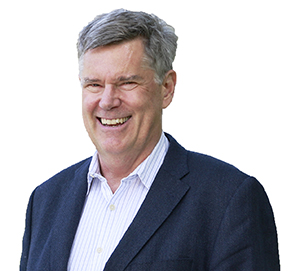
"What has changed as a result of the EdD experience is the depth of my emotional understanding and my internalization of the issues. This has helped me become a behind-the-scenes leader and able to have more constructive dialogue on these issues. That is something I would not have been able to contribute at anything like the same level without the EdD learning and the education my colleagues gave me in class time and outside class time in our many cohort meetings and talks."
Completing the EdD program enabled Sandy MacIver to integrate his long-time teaching and consulting experience with his scholarly interests. Now Sandy is the Director of the Joyce Centre for Business Studies at Mount Allison University in New Brunswick. Prior to applying to the EdD, Sandy had a highly successful consulting and teaching practice and he also had a gnawing sense that there was something more he wanted to explore; something as yet unfinished. But he didn’t have the time or the conceptual resources to articulate what was missing. And he found this through his cohort experience and dissertation research on the conditions for trust in organizational leadership and change.
KENNETH (SANDY) MacIVER
Director, Ron Joyce Centre for Business Studies, Mount Allison University, New Brunswick
Cohort 2001
"What has changed as a result of the EdD experience is the depth of my emotional understanding and my internalization of the issues. This has helped me become a behind-the-scenes leader and able to have more constructive dialogue on these issues. That is something I would not have been able to contribute at anything like the same level without the EdD learning and the education my colleagues gave me in class time and outside class time in our many cohort meetings and talks."
Completing the EdD program enabled Sandy MacIver to integrate his long-time teaching and consulting experience with his scholarly interests. Now Sandy is the Director of the Joyce Centre for Business Studies at Mount Allison University in New Brunswick. Prior to applying to the EdD, Sandy had a highly successful consulting and teaching practice and he also had a gnawing sense that there was something more he wanted to explore; something as yet unfinished. But he didn’t have the time or the conceptual resources to articulate what was missing. And he found this through his cohort experience and dissertation research on the conditions for trust in organizational leadership and change.
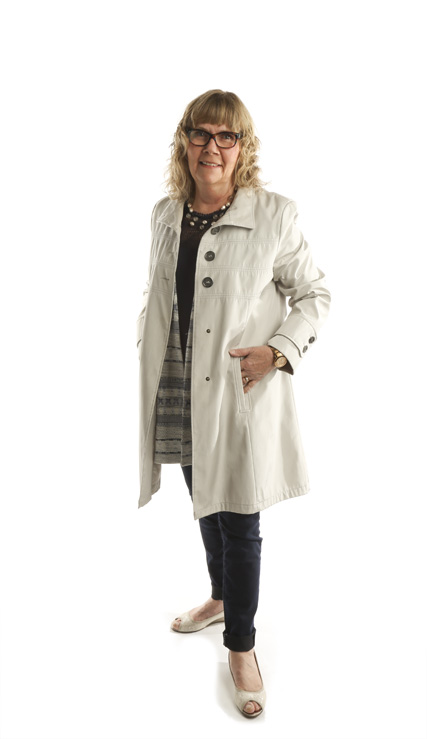
Wendy Johnson has been a teacher, an elementary school vice principal, a secondary school principal and more recently a school trustee. Wendy would say that everything she has done around educational leadership has been intuitive, and by all accounts her instincts have been very good indeed. But in 2001 Wendy was attracted to the EdD program because of a strong interest in understanding why her intuition worked so well and to ground this intuition in theory. Wendy considered herself a community builder, someone who consulted widely with staff, students, and parents to inform her plans and policies. But there was, she found, even more room to grow and learn. And there was another, wider and more powerful lens she found to examine her practice.
"I thought I was a community builder, but my concern was far greater than that. It was about democracy and democracy in schools and how much I value that. And coming to understand that community building was just part of that whole process of educating for democratic citizenship."
WENDY JOHNSON
Secondary Principal, retired; former chair, Langley Board of Education, retired; Educational Consultant
Cohort 2001
Wendy Johnson has been a teacher, an elementary school vice principal, a secondary school principal and more recently a school trustee. Wendy would say that everything she has done around educational leadership has been intuitive, and by all accounts her instincts have been very good indeed. But in 2001 Wendy was attracted to the EdD program because of a strong interest in understanding why her intuition worked so well and to ground this intuition in theory. Wendy considered herself a community builder, someone who consulted widely with staff, students, and parents to inform her plans and policies. But there was, she found, even more room to grow and learn. And there was another, wider and more powerful lens she found to examine her practice.
"I thought I was a community builder, but my concern was far greater than that. It was about democracy and democracy in schools and how much I value that. And coming to understand that community building was just part of that whole process of educating for democratic citizenship."
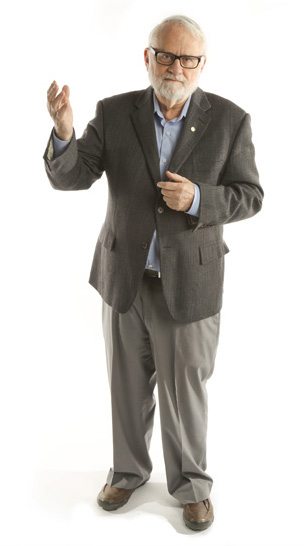
"The notion of policy archeology has been useful for me to understand some of the impediments in secondary school education policy and why iterations of progressive ideas about curriculum may get proposed and then don't go anywhere. It's a way of approaching policy historically, to understand where you are now and how that has come from a variety of other places."
Larry Kuehn is the Director of Research and Technology at the BC Teachers’ Federation (BCTF), where he has held numerous leadership positions over the years, including serving as BCTF president. In 1998, Larry saw an ad for the EdD and, as he recalls, it looked more interesting than going for a PhD. The program was his opportunity to reflect deeply on the many dimensions of his educational practice. One of the impacts on him was the course on educational policy, which introduced him to the idea of “policy archeology.” This is an approach to studying policy that takes less for granted than conventional models. Policy archeology asks questions such as why some matters make it onto the policy agenda at particular moments, while others do not.
LARRY KUEHN
Director, Research and Technology, BC Teachers' Federation, Vancouver
Cohort 1998
"The notion of policy archeology has been useful for me to understand some of the impediments in secondary school education policy and why iterations of progressive ideas about curriculum may get proposed and then don't go anywhere. It's a way of approaching policy historically, to understand where you are now and how that has come from a variety of other places."
Larry Kuehn is the Director of Research and Technology at the BC Teachers’ Federation (BCTF), where he has held numerous leadership positions over the years, including serving as BCTF president. In 1998, Larry saw an ad for the EdD and, as he recalls, it looked more interesting than going for a PhD. The program was his opportunity to reflect deeply on the many dimensions of his educational practice. One of the impacts on him was the course on educational policy, which introduced him to the idea of “policy archeology.” This is an approach to studying policy that takes less for granted than conventional models. Policy archeology asks questions such as why some matters make it onto the policy agenda at particular moments, while others do not.

"The EdD helped me to recognize that people need to go through a process to find their own leadership voice. And that they cannot achieve their potential as leaders without bringing forth their own voice—that nobody else can give that to them, until they find out what they are passionate about."
It was like cracking open a door. That is what Kathy Coyne remembers most about being in the EdD program as she began to think about leadership differently. Back in 1997, when she first started the EdD program, she was working at the Vancouver East Community Skills Connection in the Downtown Eastside in community development, adult education and training and was looking for ways to make a difference there. Years later Kathy continues to make a difference at Capilano University and in her consulting practice where she has developed numerous community leadership programs for learners with barriers to post-secondary education as well as evaluation tools for community organizations.
KATHLEEN COYNE
Faculty member, Community Development and Outreach, Capilano University & Educational Consultant
Cohort 1997
"The EdD helped me to recognize that people need to go through a process to find their own leadership voice. And that they cannot achieve their potential as leaders without bringing forth their own voice—that nobody else can give that to them, until they find out what they are passionate about."
It was like cracking open a door. That is what Kathy Coyne remembers most about being in the EdD program as she began to think about leadership differently. Back in 1997, when she first started the EdD program, she was working at the Vancouver East Community Skills Connection in the Downtown Eastside in community development, adult education and training and was looking for ways to make a difference there. Years later Kathy continues to make a difference at Capilano University and in her consulting practice where she has developed numerous community leadership programs for learners with barriers to post-secondary education as well as evaluation tools for community organizations.